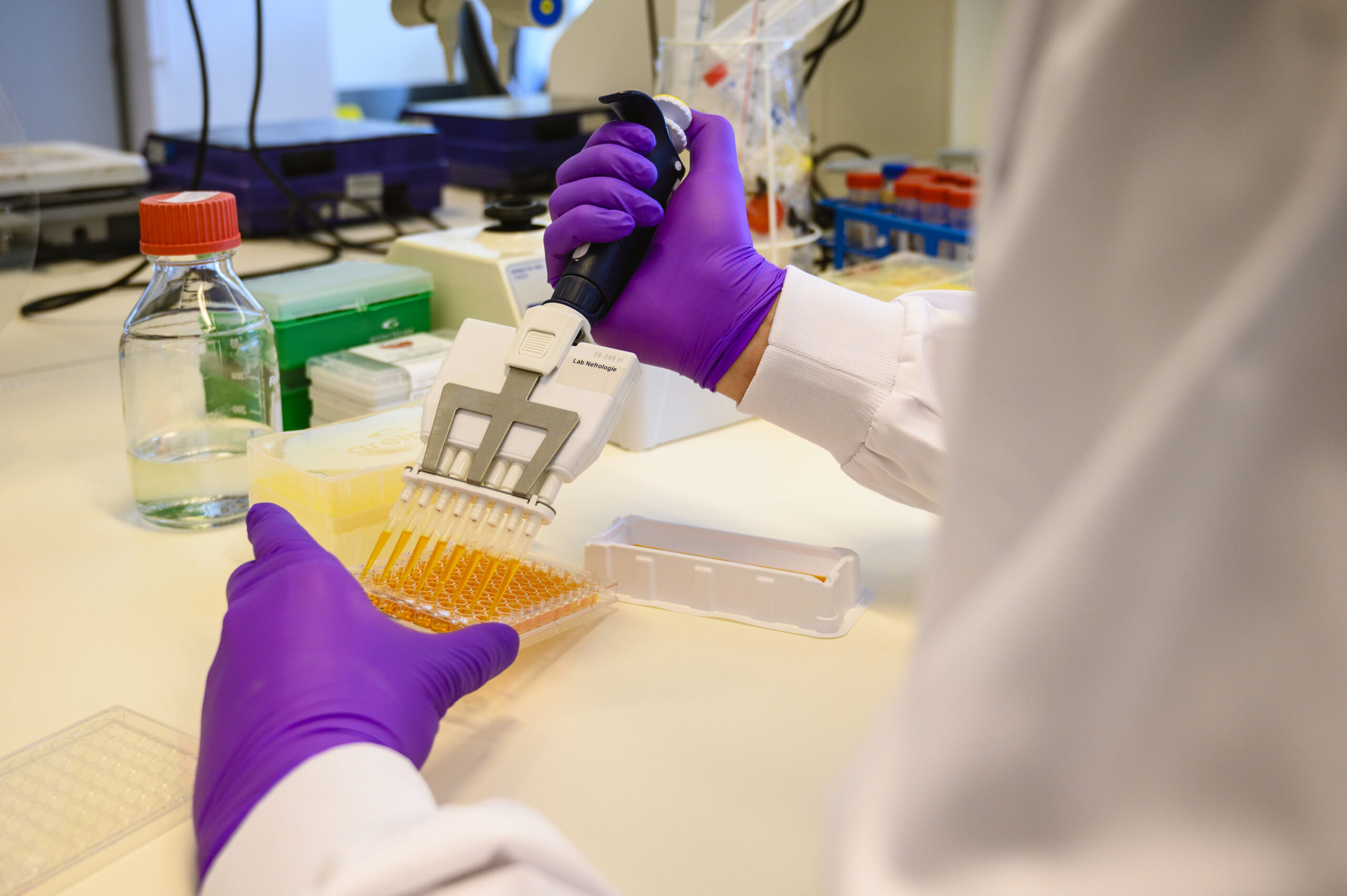Neurogenetic research at the UMC Utrecht Brain Center aims to identify the genetic and molecular mechanisms underlying various neurological diseases to improve diagnosis and treatment. The research focuses on both familial and complex neurogenetic diseases, including epilepsy, ALS, SMA, cerebrovascular, psychotic, and developmental disorders. Studies utilize advanced DNA and RNA sequencing, and extensive data collection from familial case studies and large sample cohorts to uncover gene expression and methylation patterns, enabling the reconstruction of disrupted gene networks and the development of effective treatments.
The patient and his or her disease are the starting point for most research themes and approaches at the UMC Utrecht Brain Center. Translational Research, however, uses model systems to resolve questions that –as yet– cannot be answered in humans. This opens up a wide range of possibilities. Humanized genetic animal models are used to examine the onset of disease characteristics under highly controlled environmental circumstances.
At the UMC Utrecht Brain Center, cutting-edge research in neuroimaging and neurotechnology is paving the way for significant advancements in understanding and treating neurological, cerebrovascular, neurodevelopmental, and psychiatric conditions. This work involves innovative techniques for brain imaging and direct interaction with neural activity.
Neuroimaging: Utilizing state-of-the-art MRI systems, including a unique 7T METAscan and PET CT scanners, researchers at UMC Utrecht delve deep into the structural and functional aspects of the brain. These advanced tools help in discovering new diagnostic markers, studying brain (dys)function related to various disorders such as cancer and dementia, and enhancing image acquisition and analysis through AI technologies.
Neurotechnology: This field extends beyond imaging to direct engagement with the brain’s functioning, employing methods such as electroencephalography (EEG) and Transcranial Magnetic Stimulation (TMS) for non-invasive interventions, alongside implanted devices for more direct neural manipulation. These technologies are critical in understanding diseases such as ALS, enhancing motor recovery post-stroke, and improving outcomes in PTSD treatment, among others.
At the UMC Utrecht Brain Center, patient participation in research is an integral approach, highlighting a commitment to incorporating real-world patient experiences into scientific inquiry. This participation is not only a practice but is deeply embedded in the research ethos, as the center’s researchers formulate their scientific questions based directly on patient needs and experiences. This ensures that the research conducted is not only groundbreaking but also directly relevant to patient care and outcomes.
UMC Utrecht strongly supports the involvement of patients throughout the research process, from defining the research questions to interpreting the results and integrating findings into clinical practice. This inclusive approach aims to bridge the gap between scientific research and practical healthcare outcomes, making it a cornerstone of the center’s mission to improve patient care through innovative and ethical research practices.
Clinical trials are crucial at the UMC Utrecht Brain Center for advancing medical knowledge and developing effective treatments for neurological conditions. These trials rigorously test new therapies, ensuring they are safe and effective before becoming widely available. By participating in clinical trials, patients contribute to innovative research that can lead to new solutions and improved quality of life for those affected by brain disorders. Additionally, clinical trials help identify the best treatment protocols, refine existing therapies, and enhance our understanding of various neurological diseases.
